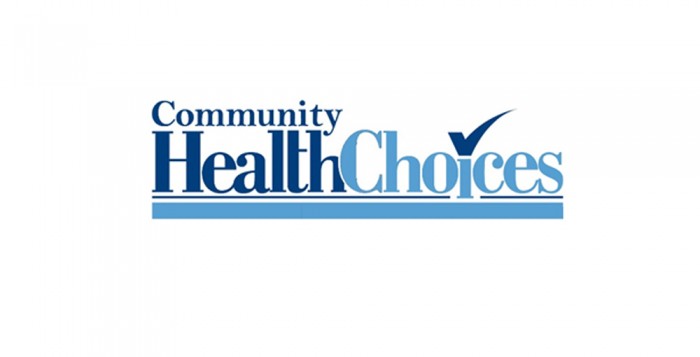The Centers for Medicare and Medicaid Services (CMS) recently announced their intent to adopt a new interpretation of the statute that impacts how adjustments to the fee schedule based on information from competitive bidding programs apply to wheelchair accessories used with Group 3 complex rehabilitative power wheelchairs. As of July 1, 2017, the fee schedule amounts for wheelchair accessories and back and seat cushions used with Group 3 complex rehabilitative power wheelchairs will not be adjusted using information from the Durable Medical Equipment, Prosthetics, Orthotics, and Supplies (DMEPOS) Competitive Bidding Program. Instead, the fee schedule amounts will be based on the unadjusted fee schedule amounts updated by the annual fee schedule covered item update. Suppliers are being instructed to continue to use the KU modifier when billing for wheelchair accessories and seat and back cushions furnished connection with Group 3 complex rehabilitative power wheelchairs with dates of service beginning July 1, 2017. This new action will help to protect access to complex rehabilitative power wheelchair accessories for those individuals that depend on them.
Enrollment Information Requests for CHC Providers
Today the Office of Long-Term Living (OLTL) issued a communication to the Home and Community-Based Service Providers that will be enrolling into the provider networks of the Managed Care Organizations (MCOs) through Community HealthChoices (CHC).
With the onset of CHC, Pennsylvania’s three Managed Care Organizations are in the process of establishing strong provider networks to support the program. In order to ensure network adequacy, the department is gathering information to establish a baseline of the number of full time equivalent (FTE) workers that are potentially needed to continue to provide services and meet the needs of the participants. Due to this requirement, the CHC MCOs will be asking providers for this information during a provider’s initial enrollment with an MCO and on an ongoing basis. The OLTL appreciates the continued cooperation of providers in ensuring a smooth transition for participants into the CHC program. If you have questions, please contact the OLTL Bureau of Quality and Provider Management, Enrollment and Certification Section at 717-772-2570.
TBI Advisory Board Meeting Scheduled for August 4
The Traumatic Brain Injury (TBI) Advisory Board, which is established under section 1252 of the Federal Traumatic Brain Injury Act of 1996, will convene for their public meeting on Friday, August 4, 2017, from 10:00 am to 3:00 pm in the large conference room of the Community Center, 2nd Floor, Giant Food Store located at 2300 Linglestown Road, Harrisburg, PA 17110.
The Board assists the Department of Health in understanding and meeting the needs of persons living with traumatic brain injury and their families. This quarterly meeting will provide updates on a variety of topics including the number of people served by the Department of Health’s Head Injury Program (HIP). In addition, meeting participants will discuss budgetary and programmatic issues, community programs relating to traumatic brain injury, and available advocacy opportunities.
For additional information, or for persons with a disability who wish to attend the meeting and require an auxiliary aid, service, or other accommodations to do so, please contact Michael Yakum, Division of Community Systems Development and Outreach, 717-772-2763. For speech and/or hearing impaired persons, contact V/TT 717-783-6514 or the Pennsylvania AT&T Relay Service at 800-654-5984.
OLTL Documents Outline Upcoming COMMCARE Waiver Transition
The Office of Long-Term Living (OLTL) has released two documents for direct service providers that serve COMMCARE Waiver participants. The documents outline the activities that will occur in the coming months as the COMMCARE Waiver participants transition to either the Community HealthChoices (CHC) program or the Independence Waiver. These documents include a detailed overview and timeline of the transition and a fact sheet about CHC. The COMMCARE Waiver will end statewide on December 31, 2017.
OLTL Service Coordination Entities (SCEs) and participants will be notified of these changes in a separate communication in mid-July.
Community HealthChoices Webcast for MLTSS MAAC Meeting July 7, 2017
The Office of Long-Term Living has announced registration information for stakeholders to participate in the next MLTSS Subcommittee of the Medical Assistance Advisory Committee:
Attendance via phone/webcast:
If you wish to participate in the Managed Long-Term Services and Supports (MLTSS) Subcommittee meeting on Friday, July 7, 2017, 10:00 am to 1:00 pm, in the Honor’s Suite at 333 Market Street Tower in Harrisburg, and cannot attend in person, OLTL is offering webcast and dial-in capabilities.
To participate via webcast, please register by using the link below. We encourage those participating by webcast to register early. When registering, please verify that you entered your email address correctly. You will receive a confirmation email containing information about joining the webcast if you registered correctly. Please be advised that space is limited on the phone line.
The dial-in number is: 888-468-1160 PIN: 252190#
If you have any questions about registering for the webcast, please contact the Office of Long-Term Living.
MedPAC Releases June 2017 Report to Congress
The Medicare Payment Advisory Commission (MedPAC) has released its June 2017 Report to Congress: Medicare and the Health Care Delivery System. This report includes, among other topics, a chapter focusing on implementing a unified payment system for post-acute care. Specifics in this chapter includes implementing a post-acute care prospective payment system (PAC PPS) beginning in 2021 with a three-year transition, lower aggregate payments by five percent, absent prior reductions to the levels of payments, start to align setting-specific regulatory requirements, and periodically revise and rebase payments to keep payments aligned with the cost of care.
Some of the topics included in the other chapters include Medicare Part B drug payment policy issues; redesigning the merit-based incentive payment system (MIPS) and strengthening advanced alternative payment models, etc. MedPAC also released a fact sheet on the report.
PA Health & Wellness Contracting Overview and Training Webinar!
RCPA is partnering with PA Health & Wellness to provide a free webinar on contracting overview and training. We are preparing to ensure continued access of care for participants of the Community HealthChoices program. This webinar will review the PA Health & Wellness contract and the process to become a partner in their network.
This free webinar will be held on Tuesday, June 27, 1:00 pm – 2:00 pm EDT. Please register here. Please download the orientation file.
If you have any questions, please call Melissa J. Siwiec from PA Health & Wellness at 717-551-8020.
RCPA presents The PA ABLE Savings Program (webinar)
Thu, Jul 20, 2017 11:00 am – 12:00 pm EDT
A PA ABLE Savings Program account gives individuals with qualified disabilities (Eligible Individuals), and their families and friends, a tax-free way to save for a wide range of disability-related expenses, while maintaining government benefits. The state and federal tax-free investment options are offered to encourage Eligible Individuals and their families to save private funds to support health, independence, and quality of life. Some of the topics that we will discuss include: eligibility requirements for opening a PA ABLE account, the federal and state tax benefits of PA ABLE, and how PA ABLE account interacts with current benefits. Register here for this free webinar.
2017 LTSS Scorecard Results
Yesterday, the AARP Public Policy Institute released a document, Picking Up the Pace of Change, supported by the AARP Foundation, The Commonwealth Fund, and The Scan Foundation. The report, the third in a series, can be accessed online.
According to authors Susan Reinhard, Jean Accius, Ari Houser, Kathleen Ujvari, Julia Alexis, and Wendy Fox-Grage, the Long-Term Services and Supports (LTSS) State Scorecard aims to pick up the pace of improving LTSS by providing comparable state data to benchmark performance, measure progress, identify areas for improvement, and improve lives.
The goal is for the Scorecard to stimulate a dialogue among key stakeholders, encouraging them to collaborate on strategies for improving their state’s LTSS system. The LTSS State Scorecard — a compilation of state data and analysis — finds that progress toward better support for our rapidly increasing populations that are aging and living with disabilities is slow and uneven, with great variation among states. Still, states made significant improvements in a number of areas.
The two areas with the most significant declines are employment for working-age people with disabilities (21 states) and long-stay nursing home residents moving back to the community (21 states). The Scorecard shows the best, worst, and median scores on 25 indicators and can be compared across states. Pennsylvania’s Scorecard shows performance improvement in eight indicators and one performance decline since the 2014 report. Of the 50 states and the District of Columbia, Pennsylvania is ranked 36 overall and as follows in the five domains:
- Affordability & Access 37
- Choice of Setting & Provider 23
- Quality of Life & Quality of Care 25
- Support for Family Caregivers 43
- Effective Transitions 28
According to the report, this progress is not enough, even though states are inching toward spending a greater proportion of Medicaid and state LTSS funding on home- and community-based services — a positive trend because it both enables greater independence and is cost-effective. The authors urge accelerated activity so that all states reach much higher benchmarks by 2026; the year when baby boomers begin to turn 80 and begin to experience a greater need for LTSS.
State and federal officials, providers, advocates, and other stakeholders can use the data analytics in this Scorecard to see how their state compares with others and to assess both their successes and areas in need of reform in order to improve support for older people, adults with physical disabilities, and their family caregivers.
Aging & DHS Announce Agreement with Aging Well and CHC
The Pennsylvania Departments of Aging and Human Services recently announced an agreement with Aging Well (a subsidiary of the Pennsylvania Association of Area Agencies on Aging or P4A that represents all Area Agencies on Aging) to partner on the implementation of Community HealthChoices (CHC).
Under this new agreement, Aging Well will have the following responsibilities:
- Complete the Functional Eligibility Determinations (FEDs) (via subcontracts with AAAs). Aging Well will conduct the FEDs for participants seeking eligibility for long-term services and supports. Aging Well will also perform the annual in-person re-determinations for people over the age of 60. While FEDs currently need to be completed for individuals applying for the Office of Long-Term Living (OLTL) waivers, ACT 150 program, Living Independence for the Elderly (LIFE), and nursing facility coverage, as the commonwealth begins its implementation of Community HealthChoices, Aging Well will continue to fulfill this role. In addition, as the commonwealth transitions from the existing assessment tool (the Level of Care Determination) to the FED, Aging Well will continue to actively support and facilitate this conversion.
- Conduct Pennsylvania Preadmission Screening Resident Review Evaluation (PASRR-EV Level II Tool) (via subcontracts with AAAs). Aging Well will conduct the screening for individuals with a mental illness, intellectual disability or related condition, who are seeking admission to Medicaid certified nursing facilities regardless of payer source. These individuals must have the PASRR process completed prior to admission to the nursing facility.
- Annual re-determinations (via subcontracts with AAAs). Prior to the implementation of CHC, Aging Well will conduct an annual in-person re-assessment within 10 business days of request by a service coordinating entity for all Aging Waiver participants. After the implementation of CHC, Aging Well will review FED assessment data collected by the managed care organizations for all CHC waiver participants in order to confirm annual redeterminations of level of care have been properly conducted. This will be completed as a desk review.
- Conduct CHC outreach and education activities statewide (via partnerships with AAAs, nursing facilities, and community-based organizations). Aging Well will begin outreach and education activities in July 2017 for the rollout of Phase 1. These activities include 20 public information sessions and training of service coordinators and nursing facility staff.

















